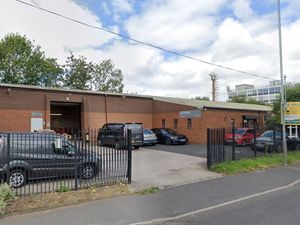Ofsted attacked in racism row over how British values are taught at school
A teachers union has hit out at Ofsted’s ‘racist perspective’ on how British values are taught after the education watchdog criticised a Sedgley school’s performance.

The Dudley branch of the National Education Union (NEU) has defended staff saying they issued vague guidelines by Ofsted on how to teach moral beliefs.
The union’s claim comes after a report on Queen Victoria Primary said pupils do not learn enough about aspects of personal development including an ‘understanding of fundamental British values’.
Neither the school, its teachers or its pupils are accused of racism but Ofsted inspectors said: “Pupils do not learn enough about some aspects of personal development such as healthy eating and their understanding of fundamental British values.”
Queen Victoria’s headteacher, Catherine Rindl, declined to answer specific questions about the teaching of values saying the school had accepted Ofsted’s findings.
The NEU has complained schools were not being given clear guidance on the subject, and the view that only British people had moral beliefs was racist.
A union representative said: “When it comes to teaching values in the classroom, all schools have had the same problem in identifying what exactly the government means by British values.”
Saying different countries and cultures shared many common moral views, she added: “And it comes over as quite racist in its perspective, because it is implying this is a value only British people hold and those from other nationalities don’t hold them.”
“No school in the country knows exactly what they need to do. The guidance is not the best, (schools) find out and do what they think is wanted until Ofsted comes in and tells them what Ofsted wants to see.”
In its report on Queen Victoria Primary, Ofsted does not spell out what it meant by British values but in guidance it published in 2014, it says: “Pupils must be encouraged to regard people of all faiths, races and cultures with respect and tolerance.
“It is expected that pupils should understand that while different people may hold different views about what is ‘right’ and ‘wrong’, all people living in England are subject to its law.”
Overall, Ofsted rated the school as requiring improvement.
In response, Mrs Rindl said: “While we fully accept the findings of the report, we are pleased inspectors recognised the strength of the school’s leadership and the warm and welcoming environment we provide for children, where they feel safe and enjoy being at school.
“The inspectors recognised many of the things we are doing well but we recognise we need to do more.
“The inspection has confirmed to us that we’re on a journey of improvement and we are confident with the support of our governors and the local community that we are close to becoming a good school.”
A spokesman for Ofsted said: "We judged that this school required improvement for the reasons that are clearly set out in the inspection report. Our inspectors found that pupils did not “learn enough about some aspects of personal development such as healthy eating and their understanding of fundamental British values”.
"This NEU accusation is wrong. Our inspection handbook is very clear that schools must develop and deepen pupils' understanding of the fundamental British values of democracy, individual liberty, the rule of law and mutual respect and tolerance.
"These values are not unique to Britain, and we have never said that only British people have moral values. Preparing pupils for life in modern Britain is a crucial part of what schools do, and most schools have no difficulty in teaching these values."




